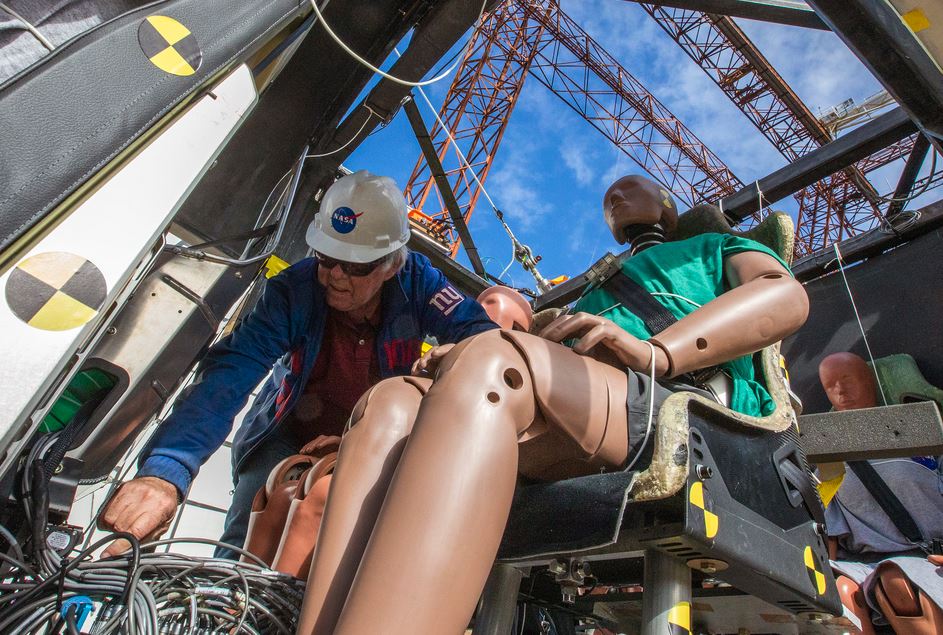
NASA reports that its researchers recently completed a full-scale crash test of an electric vertical takeoff and landing (eVTOL) concept vehicle at its Langley Research Center in Hampton, Virginia.
The eVTOL was a ‘Lift+Cruise’ test article developed by the Revolutionary Vertical Left Technology (RVLT) project which was “hoisted into the air, released with pyrotechnic cutters, and then swung forward and down back to the Earth with a loud crash.”
Justin Littell, research assistant for Langley’s Structural Dynamics Branch said the eVTOL vehicle concept was “representing a six-passenger, high wing, overhead mass, multiple rotor vehicle, obtaining more than 200 channels of data, and collecting over 20 onboard and off-board camera views.”
NASA said that a variety of experiments were undertaken including several seat configurations; a NASA energy absorbing concept; various sizes of crash test dummies; and a modular NASA-developed energy-absorbing composite subfloor.
“While we are still going through the data and video, and these results are preliminary, we see that there are two main events that occurred during this test,” said Littell.
- “The first event was the floor crushing and seat stroking. The subfloor and energy absorbing seats functioned as intended and limited the effect of the impact on the crash test dummies.
- “The second was the collapse of the overhead structure. The effect of the overhead structure collapse on the crash test dummies is still being determined.”
“Our computational pre-test models did a good job predicting the composite deformation until overhead structural failure,” said Littell. “However, the computational models did not predict the overall collapse as seen in the test.”
The full-scale testing data will be used to improve the simulation models such that in the future, the predictions will be more realistic says NASA. “The data will further be used as the basis for evaluating potential test conditions and configurations that will be used during a drop test of a second Lift+Cruise test article, tentatively scheduled for testing in late 2023.”
For more information
https://www.nasa.gov/feature/nasa-crash-tests-evtol-concept
(Image: NASA)

